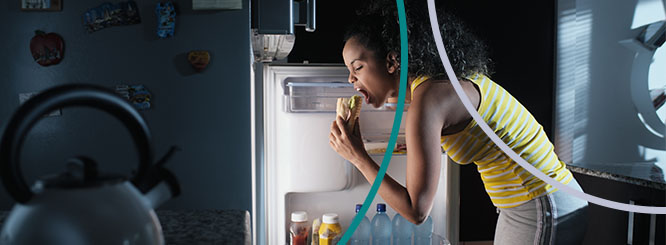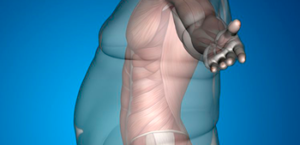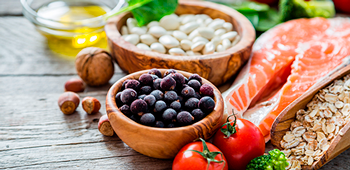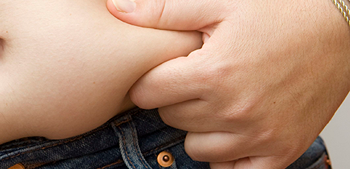
People who struggle with obesity can face a number of general health issues like diabetes, joint problems, and high blood pressure. Surgical weight loss procedures, such as the gastric bypass, allow patients to shed pounds rapidly and improve their overall wellness and quality of life. It’s important to highlight that the gastric bypass is also available for patients who aren’t severely overweight. Dr. Liza Maria Pompa González and her team of doctors have helped numerous patients in Tijuana, MX and San Diego, CA lose weight through bariatric surgery techniques.
After a gastric bypass surgery (also known as Roux-en-Y), patients may still face some issues with keeping their weight off and eating healthy. Several questions about what to eat and what not to may also arise during the postoperative period which may cause trouble when trying to stick to a well-rounded dietary plan. The medical team at LIMARP® would like to discuss overeating after weight loss surgery and what can be done to prevent it.
Is It Possible to Overeat After a Gastric Bypass?
Yes.
Even though the gastric bypass surgery reduces the amount of food your stomach can hold, people can still overeat. This can take form in irregular snacking behaviors or binging during meals despite being full. Because the surgery creates a small pouch in the stomach that connects to the small intestine, overeating can result in significant weight gain or plateaus, which means that the patient won’t be able to reach their weight loss goals.
People can have a complicated relationship with food and overeating can become a type of coping mechanism to deal with stress or sadness, or it can simply be a force of habit. It’s important that bariatric surgery candidates seek professional counseling before and after getting the gastric bypass in case they suffer from disordered eating habits. Since weight loss surgery is about creating new habits to lead a healthier lifestyle, we present numerous ways to avoid overeating.
What Happens If I Overeat After a Gastric Bypass Surgery?
There are several risks that a bariatric patient may encounter if they overeat after getting a gastric bypass. While the consequences are not deadly, they can be terribly uncomfortable or painful. Most of the effects that overeating can cause on a patient are gastrointestinal, but they can also be gastroesophageal.
Some of the most common symptoms are nausea, vomiting, and abdominal pain, which are more likely to present themselves during the postoperative recovery phase. The body takes time to recover after the gastric bypass surgery, so consuming food that’s high on fat and carbohydrates or overly spicy may cause unpleasantness. These symptoms are common during the recovery process, but if they become frequent and the pain is too severe, talk to your doctor.
Another side effect is dumping syndrome, which happens when the food you consume, usually undigested, passes too quickly through the intestine. Some symptoms may include increased sweating, diarrhea, dizziness, and nausea. However, the most concerning side effect is the sudden drop in blood sugar; if you happen to experience this, seek urgent help immediately.
Patients who overeat after gastric bypass surgery can also experience heartburn because of the stomach acid going back up the esophagus. Heartburn is a mild side effect, but if it goes untreated for too long it can develop into gastroesophageal reflux disease (GERD). If any of the aforementioned effects become debilitating or unmanageable, contact your doctor as soon as possible.
What Can Be Done to Prevent or Manage Overeating?
Bariatric patients that become eligible for the gastric bypass are given a detailed explanation of the process they will go through before and after the surgery. This includes a dietary plan that will evolve as your body recovers, our medical team at LIMARP® works alongside you to create a personalized plan that’s right for you. While each patient’s relationship with food is different, here are some tips that can help you manage or prevent overeating:
- Chew Your Food Slowly
When people eat quickly, it’s common that they don’t realize that they’re full until they’ve overeaten. If you chew slowly and really savor your meals, you’ll be able to tell when you’re really full and be conscious of the amount of food you’ve eaten. This is a good technique to follow, regardless of your current weight.
- If Possible, Stop Eating When You’re Comfortably Full
Everyone has grown accustomed to wanting to finish everything that’s on their plate; it’s something parents tell their kids everyday or simply a showing of good manners, but you really don’t have to if you’re already full. Forcing yourself to finish every single thing on your plate can lead to overeating and it’s important to listen to your body when it’s already full. Get it boxed up or use a sealable container so you can save it for later.
Learning how to identify your body’s cues when it’s full takes time, so it’s important to highlight that if you’re following a strict diet, this method may not be suitable for you. Contact your doctor or a trained professional if you’re having trouble maintaining a healthy diet.
- Portion Control
Portion control can make a major difference when it comes to how much you consume, but it must be done responsibly and by following a meal plan approved by a licensed dietitian. This technique can help prevent overeating, but it can also lead you to undereating; if you’re recovering from a gastric bypass, it’s imperative that you follow a structured diet so that you can ingest the necessary nutrients.
However, if your doctor does recommend portion control, measuring tools can aid you in constructing meals that meet the required calories in your diet plan. Small plates, scales, and measuring cups can help you distribute your macronutrients in an efficient way.
- Drink Water Between Meals
Hydration is essential for overall good health, which is why you should drink water throughout the day. Drinking water can help you with irregular snacking habits that can lead to overeating and it’s beneficial for having a healthier digestion. Keep in mind that it’s not healthy to replace your meals with water and the overconsumption of liquids can also have a negative impact on your bodily functions. The recommended amount of water ranges between three and four liters a day, depending on your weight and circumstance.
- Speak with a Therapist About Your Eating Habits
Since our emotional and psychological relationship to food is complicated, it’s important that you speak with a therapist about these issues. They can go over your thought process regarding food and help you develop better habits and behaviors when it comes to eating and your coping strategies. Our team at LIMARP counts with licensed professionals that can help you in your journey of developing a healthier relationship with food and overall body image.
Contact Us to Learn More
For more information about the consequences of overeating after a gastric bypass, schedule an appointment with one of our doctors. We can help determine the right treatment for you. Contact us online anytime or give us a call at (619) 373-0229.


